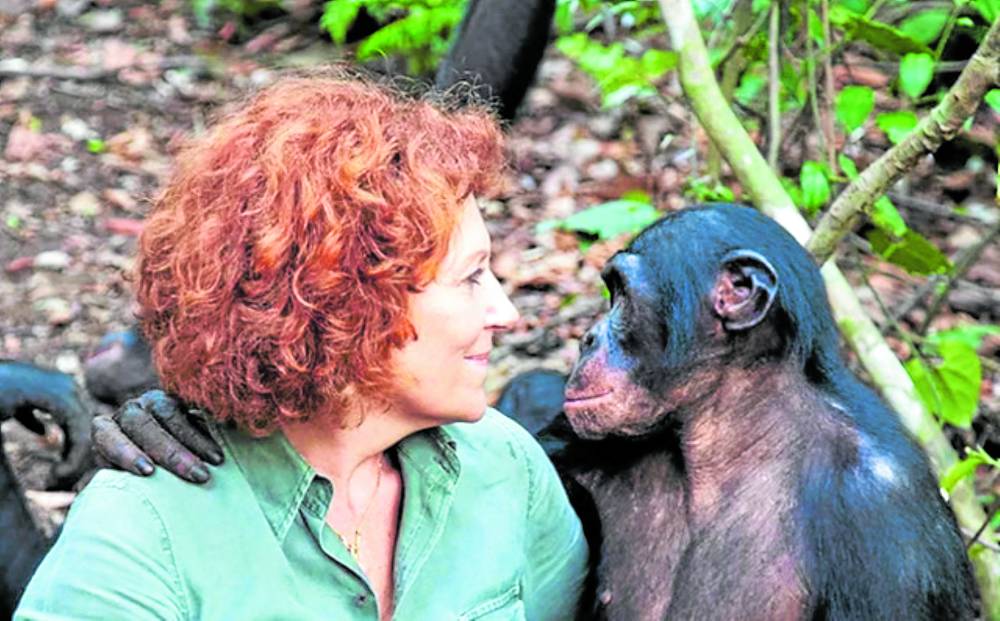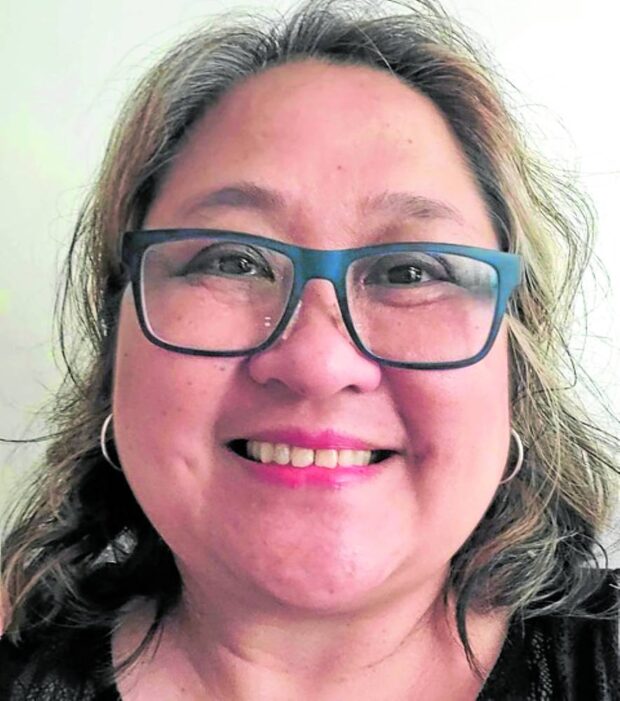Hats off to women leaders in environmental management

WILDLIFE CHAMP Claudine André, founder of Lola ya Bonobo sanctuary in Congo —Photo from Friends of Bonobo website
DUBAI, United Arab Emirates —This Women’s Month, let’s look at how women leaders have significantly contributed to the preservation of the environment, protection of wildlife, prevention of water resources degradation and climate crisis mitigation.
Caring for bonobos
Born in Belgium, Claudine André moved to the Democratic Republic of Congo with her family when she was three years old. Living in Kinshasa with her husband Victor, she ran a luxury boutique while raising five children.
When political unrest struck the country, extreme poverty became the norm. The animals at Kinshasa Zoo became neglected and were at risk of starving,
Volunteering to help, Claudine learned that the zoo had taken in Mikeno, a sick baby bonobo. People were hunting adult bonobos for meat due to starvation amid the raging war, leaving bonobo babies as orphans.
Before Mikeno, every baby bonobo orphan at the zoo had died. But Claudine stayed with the infant, held him, played with him. With Claudine’s compassion, mothering and determination, Mikeno lived.
Claudine realized that baby bonobos needed affection—not only nutritious food and medical care—to thrive. Baby bonobos cannot survive without their mother’s love.
READ: Women-managed areas: Recognizing women’s vital role in the fishery sector
This insight led to Lola ya Bonobo, the bonobo sanctuary Claudine opened in 2002, which has since become a success story. Claudine’s gift for saving bonobos spread, and people from different places began giving orphaned bonobos to her. She founded the nonprofit organization Amis des Bonobos du Congo in 1994 to mobilize support for orphaned bonobos.
In 2009, after many years of planning and conservation efforts, Claudine led the first successful rewilding of bonobos, bringing more than 30 bonobos back into the wild. Now, more than 60 bonobos of all ages wander, eat and play on the 75 acres of the Lola ya Bonobo Sanctuary.
Effective leaders
Another noteworthy woman leader is British environmentalist Emily Penn who leads The Plastic-Free Coastlines Initiative. The project aims to reduce plastic pollution in the oceans by educating coastal communities in countries such as Indonesia, the Philippines and Vanuatu.
Established in 2016, the project has implemented plastic waste reduction strategies, promoted sustainable tourism practices and educated local communities on the impact of plastic pollution.
READ: 7 Filipinas who are fierce defenders of Mother Earth
My book chapter on “Women Leaders in Environmental Management and the Role of Media in the EMEA (Europe, Middle East and Africa) Region” highlights the pivotal role of women in environmental conservation efforts. Women leaders have been instrumental in mitigating the effects of climate change, protecting biodiversity and promoting sustainable development.
An increasing number of women leaders in various industries in the EMEA region play a crucial role in shaping public opinion on environmental issues by building awareness, mobilizing grassroots support and advocating policy initiatives. Gender bias and threats to their safety are present in the work, but it also carries opportunities for collaboration and partnerships.
Through collaboration and teamwork, communication, problem-solving, innovation, attention to detail, and empathy and inclusivity, women are seen as effective leaders.
The banking industry, energy sector, government and activism are among the key areas where women leaders have made notable contributions. Women in media also shape public opinion and create awareness of environmental issues.
Start at home
Research has shown that women’s voices and perspectives are often underrepresented in decision-making processes related to the environment. Thus, highlighting the role of women leaders in these fields can inspire and empower other women to take on leadership roles and contribute toward sustainable development.

Maybel Fernandez-Vallado
I have also been an advocate of environmental protection and recycling for years now. My initial efforts include a coastal cleanup of Nogas Island during Earth Day in May 2007, initiated by my former student, Dr. Shiela Villamor-Chumchuen, along with my two children and other students from the University of the Philippines Visayas.
Likewise, I was invited as a lecturer on the importance of water to the community for the turnover of a water pump as part of my son’s community project for the people of Barangay Bancal in Alimodian, Iloilo, in March 2006.
Along with Professor Rhoda Braganza Burdett, I visited the Taklong Island National Marine Reserve, a marine biological station run by the University of the Philippines Visayas, located in Nuevalencia, Guimaras, and planted mangroves.
I also have a small garden here in Dubai. Small steps such as having a compost garden are not only achievable, but are also easy to implement in one’s own household.
Sometimes we think we need to do a big project to make a significant contribution to preserving our environment. However, small tasks can contribute as well. Teaching our children to keep their trash in their bags if there are no trash bins in sight, for instance: This practice not only keeps the environment clean, but also helps prevent clogging street drains. Trash dumped indiscriminately eventually ends up in the ocean and kills marine life. Over time, even our food security is threatened.
Call to action
A lot of problems are caused by our lack of awareness, our complacency and inaction. Every effort toward the protection of the environment counts.
Working together as a community can help promote better health and ensure that the air we breathe is clean, and our lives are free from air, water and land pollution.
The United Nations Sustainable Development Goals—poverty eradication, food security, child rights protection, women and young girls’ empowerment, equal access to education, a sustainable future, clean energy and more—aim to transform our world. They are a call to action to end poverty and inequality, protect the planet, and ensure that all people enjoy health, justice and prosperity.
It is critical that no one is left behind—especially women. Women constitute half of the population of the world, and their valuable contributions cannot be overemphasized. —Contributed
The author is a consultant, trainer and English teacher. She recently published two book chapters: 1) Communication Dynamics of Women in Microfinance Projects for Women Empowerment; Microfinance Projects for Poverty Alleviation in the Philippines; and 2) Women Leaders in Environmental Management and the Role of Media in the EMEA Region. She is a UP alumna and has served in various capacities in UP Visayas. Email belle.vallado@gmail.com.
